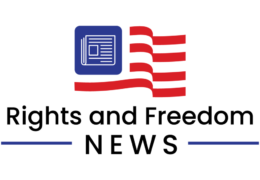GOP Insider: Democrats Are Hiding The Truth About Jimmy Kimmel

Former Republican Minnesota Gov. Tim Pawlenty told CNN host Anderson Cooper on Thursday during “Anderson Cooper 360” that late-night host Jimmy Kimmel faced consequences from his employer because he “ticked off the customers.”
Since Disney’s ABC announced it would indefinitely pull Jimmy Kimmel Live! from the air, speculation has suggested the decision was influenced by Federal Communications Commission Chairman Brendan Carr’s previous comments.
Cooper asked Pawlenty if there is “a justification for the president or his point man at the FCC to even explore revoking broadcast licenses of outlets because of how they cover him.”
“Well, just to step back and to build on the congressman’s point, the public airwaves are given to networks to serve a public interest, a public necessity and a public benefit,” Pawlenty said.
“So if you apply that standard to Kimmel’s show, I think any fair person would have to look at that show and say, over the months and years, it is a decidedly partisan show.”
“So is serially presenting partisan information on the airwaves without balance in the case of these particular comments, arguably inaccurate comments, not comedic comments and analysis? Is that in the public interest, benefit or necessity?”
“And legal scholars may say no, but if ABC believes they’re right, then litigate it.”
“By the way, the FCC hasn’t even acted. One member of the FCC got on a podcast and spouted off. So there hasn’t even been an official government action relative to ABC. And one last thing, Kimmel also ticked off the customers of his employer, namely those affiliates. As an employee, you don’t get to go around and tick off an employer’s customers without some consequence,” Pawlenty added.
Prior to ABC’s announcement, FCC Chairman Brendan Carr appeared on “The Benny Show” Wednesday.
He called Kimmel’s comments “some of the sickest conduct” and suggested the network might consider a “suspension.”
Later that day, Nexstar Media Group, one of the largest owners of TV stations in the U.S., announced it would preempt “Jimmy Kimmel Live!” on its owned and partner ABC-affiliated stations.
In a press release, Nexstar Broadcasting Division President Andrew Alford called Kimmel’s remarks “offensive and insensitive” and said the move was made to “let cooler heads prevail.”
Shortly after, CNBC reported that an ABC spokesman confirmed the show would be “pre-empted indefinitely.”
The decision came after Kimmel, during his Monday night monologue, said the “MAGA gang” had hit “new lows,” claiming Republicans tried to portray Charlie Kirk’s alleged assassin as “anything other than one of them.”
Despite prior official reports stating that 22-year-old suspect Tyler Robinson “was deeply indoctrinated with leftist ideology,” Kimmel doubled down on Tuesday.
The late-night host pushed back against Vice President JD Vance’s criticism of far-left violence in his monologue, saying, “many in MAGA-land are working very hard to capitalize on the murder of Charlie Kirk.”
Cooper went on to ask Pawlenty whether he believes Nexstar Media and Sinclair — two ABC affiliates that suspended Kimmel — might have considered FCC approval for mergers in their decision to pull Kimmel’s show.
“Absolutely,” Pawlenty said.
“I think that’s absolutely correct, Anderson. But that’s their right to get upset about that and be interested in that merger. It’s also their right to complain to ABC. But again, this is a business. The Kimmel show is a business. And you don’t get to tick off your customers without some consequence from the employer.”
According to the Wall Street Journal, sources told the outlet that Kimmel allegedly planned to claim his words had been “twisted” by some Republicans during his Wednesday monologue.
He continued to defend his remarks.
In a Wednesday statement, Sinclair said it would not lift the indefinite suspension “until formal discussions are held with ABC regarding the network’s commitment to professionalism and accountability.”
The company also called for Kimmel to issue “a direct apology to the Kirk family” and make “a meaningful personal donation to the Kirk family and Turning Point USA.”
Pawlenty’s analysis exposes the Democrats’ false narrative about government censorship being responsible for Kimmel’s downfall.
The former governor clearly explains that affiliate stations, not federal regulators, drove the decision to pull Kimmel’s show.
These local stations serve their communities and couldn’t tolerate Kimmel’s disgusting comments about Charlie Kirk’s assassination.
Pawlenty’s point about public airwaves serving the public interest highlights how Kimmel violated his broadcast responsibilities.
The governor’s observation that “the FCC hasn’t even acted” destroys liberal claims about government overreach.
One FCC member expressing an opinion on a podcast hardly constitutes official government action against ABC.
Pawlenty correctly identifies this as a business decision where an employee angered his employer’s customers.
Local affiliate stations depend on community support and advertiser relationships that Kimmel’s comments threatened.
The governor’s analysis shows how market forces, not government pressure, held Kimmel accountable for his actions.
Sinclair and Nexstar’s demands for apologies and accountability reflect their obligation to serve local communities.
These stations understand that defending a murdered conservative leader matters more than protecting a liberal comedian’s career.
Pawlenty’s explanation reveals how Democrats manufacture false government censorship narratives to avoid responsibility.
The former governor’s business perspective shows that consequences naturally follow when employees damage their company’s relationships.
Kimmel’s refusal to apologize to the Kirk family demonstrates the arrogance that led to his cancellation.
The comedian’s attempt to claim his words were “twisted” shows he learned nothing from the backlash.
Pawlenty’s analysis proves that accountability still exists in American media when public pressure forces business decisions.
The governor’s comments validate the power of local communities to reject offensive content through market mechanisms.
This case study demonstrates how grassroots pressure can succeed where government regulation might fail.
Pawlenty’s insights show that free market solutions remain the most effective check on media bias and insensitivity.
The Kimmel controversy proves that consequences still exist for those who cross basic lines of decency about political violence.

